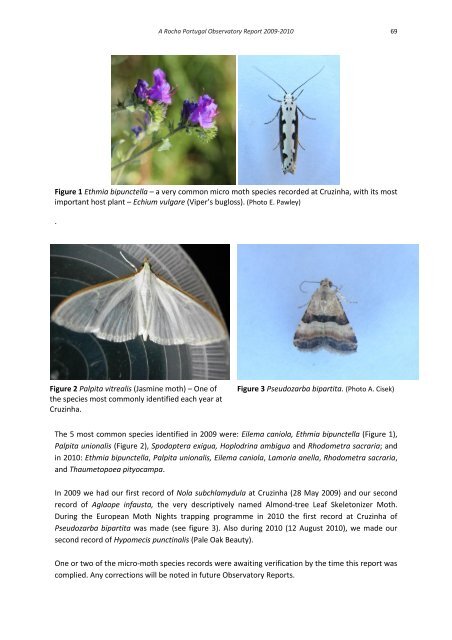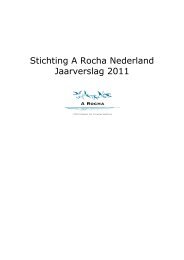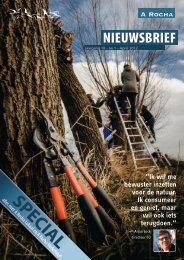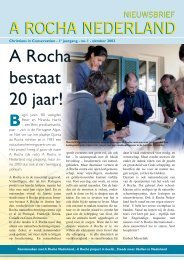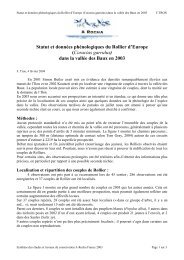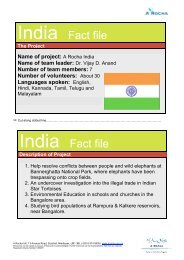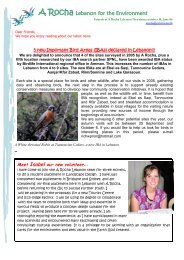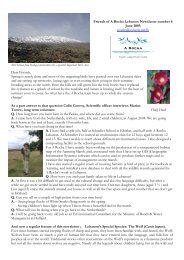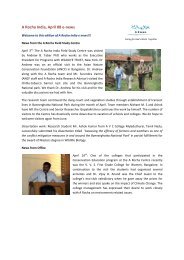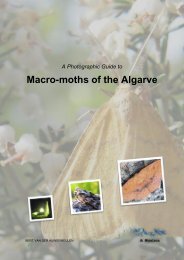A Rocha Portugal Observatory Report 2009-2010
A Rocha Portugal Observatory Report 2009-2010
A Rocha Portugal Observatory Report 2009-2010
Create successful ePaper yourself
Turn your PDF publications into a flip-book with our unique Google optimized e-Paper software.
A <strong>Rocha</strong> <strong>Portugal</strong> <strong>Observatory</strong> <strong>Report</strong> <strong>2009</strong>-<strong>2010</strong> 69<br />
Figure 1 Ethmia bipunctella – a very common micro moth species recorded at Cruzinha, with its most<br />
important host plant – Echium vulgare (Viper’s bugloss). (Photo E. Pawley)<br />
.<br />
Figure 2 Palpita vitrealis (Jasmine moth) – One of<br />
the species most commonly identified each year at<br />
Cruzinha.<br />
Figure 3 Pseudozarba bipartita. (Photo A. Cisek)<br />
The 5 most common species identified in <strong>2009</strong> were: Eilema caniola, Ethmia bipunctella (Figure 1),<br />
Palpita unionalis (Figure 2), Spodoptera exigua, Hoplodrina ambigua and Rhodometra sacraria; and<br />
in <strong>2010</strong>: Ethmia bipunctella, Palpita unionalis, Eilema caniola, Lamoria anella, Rhodometra sacraria,<br />
and Thaumetopoea pityocampa.<br />
In <strong>2009</strong> we had our first record of Nola subchlamydula at Cruzinha (28 May <strong>2009</strong>) and our second<br />
record of Aglaope infausta, the very descriptively named Almond-tree Leaf Skeletonizer Moth.<br />
During the European Moth Nights trapping programme in <strong>2010</strong> the first record at Cruzinha of<br />
Pseudozarba bipartita was made (see figure 3). Also during <strong>2010</strong> (12 August <strong>2010</strong>), we made our<br />
second record of Hypomecis punctinalis (Pale Oak Beauty).<br />
One or two of the micro-moth species records were awaiting verification by the time this report was<br />
complied. Any corrections will be noted in future <strong>Observatory</strong> <strong>Report</strong>s.


